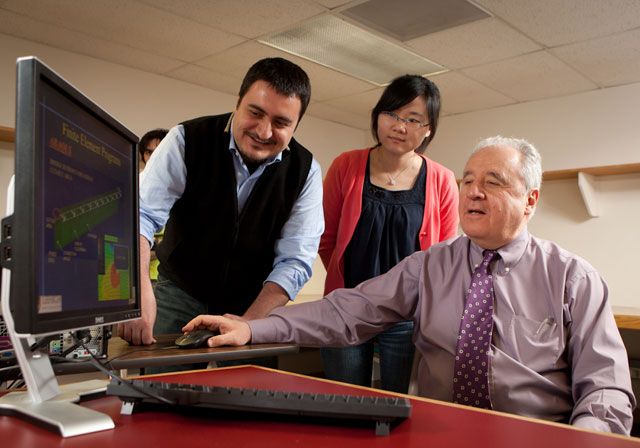Professor Dan Frangopol is interested in making our civil infrastructure safer. His recently awarded National Science Foundation (NSF) grant, entitled "Life-Cycle Management of Civil Infrastructure Considering Risk and Sustainability," will provide funds to support his research.
In recent years, life-cycle performance, safety, reliability, resilience, sustainability and risk of civil infrastructure systems have become emergent and key issues due to the frequent occurrence of natural and man-made disasters, the infrastructure crisis, and climate change. In dealing with these problems uncertainties are unavoidable. The society can no longer afford to ignore congested roads, deficient bridges, aging dams, broken levees and water mains, among others.
The importance of costs associated with managing existing structures, infrastructures and engineering systems is increasingly recognized. Decisions regarding requirements for design, continued service, rehabilitation or replacement should be based on multi-criteria optimization under uncertainty, in order to balance conflicting requirements such as cost and performance.
The NSF project pursues stochastic and multi-criteria optimization research to provide needed knowledge for the development of an integrated risk- and sustainability-informed decision making framework for optimum life-cycle management of civil infrastructure systems considering climate change. The outputs of this framework are the risk and sustainability based performance profiles and the optimized life-cycle intervention strategies taking into account conflicting budgetary and safety constraints.
The developed framework will facilitate the real-world implementation of life-cycle management methodologies taking into consideration the effects of climate change.

